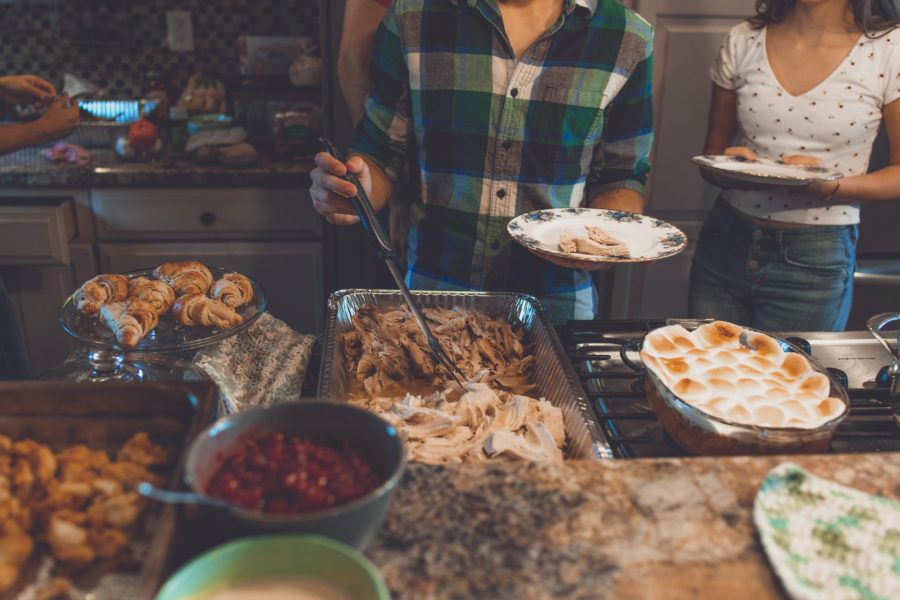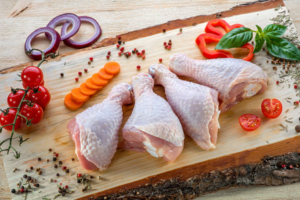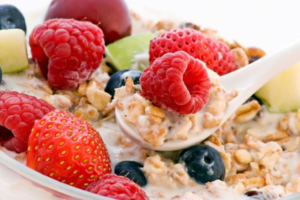It’s that time of year…when all of the nutritionists, trainers, and health coaches start to disseminate their healthy eating tips for the holidays on their social media or email marketing platform of choice. You won’t be getting that from me. Instead, let’s take a look at the holidays from a mindful eating perspective starting with Thanksgiving and working our way to the New Year.
For many, they are conditioned to expect questions such as “Do you skip the stuffing or just feel guiltier when you eat it?” For some, Thanksgiving is a joyous day of giving thanks and enjoying food that often doesn’t make it to the dinner table that often. For others though, Thanksgiving is the start of a new kind of Olympic event …how to navigate our dinner tables and our family’s perceptions during the holiday season. This can turn the holiday season into a season of uncertainty and fear as those who struggle with food find that they just want to tune out and avoid the whole season to begin with. I have compassion for this type of person because with food everywhere such as on the nightly news with recipe segments, or YouTube channel personalities sharing their favorite recipes or meal plans, and friendly colleagues at work bringing in their holiday dishes, it can be a nightmare scenario. Not only are the traditional methods of marketing beginning earlier and earlier every holiday season, but now those who struggle with food need to contend with targeted digital marketing. Targeted marketing can take one meme or post you look at on social media as the impetus to flood your digital life with advertising that does far more harm than good to anyone.
Through the “healthy eating tips for the holidays”, we learn about substitutions, distractions, self-control, and exercising more to make up for our perceived fault of not having superhuman ability to resist the holiday marketing beast. Personally, I don’t feel that any of the shame based marketing and educational information out there does much good. In fact, I feel it tends to have the opposite effect, causing more harm than good. The truth is that most people don’t actually skip the stuffing, mashed potatoes, or sweet potato pie. Instead, they pile on the guilt and shame when they eat…and this impacts our mental and our physical health, some argue just as much if not more, then the perceived unhealthy food you take in. Anyone who motivates others for long term change as a profession can tell you, guilt is a poor motivator for long term-sustainable change.
After we have past the first round of the holiday food Olympics, we move on to the preparation phase of the next round. For most this is Christmas, and with it comes the holiday baking parties and other news segments and social media videos that typically also come packaged with a message about all the “bad” foods out there. No wonder you turn to food, it’s a constant and confusing exposure to delicious foods that is interwoven into a tapestry that includes our various traditions, and some of our fondest memories. This contrasts from the messages that tend to focus on overindulgence or a lack of control. Of course the end result is that people end up feeling more out of control, more deprived, more guilty, and ultimately…craving more foods!
If this wasn’t enough, we also try to squeeze every minute of work we can. Sometimes we do this to pay the holiday bills, other times to try and escape the insanity of it all, sometimes because we take on a controlling role in our families, and for some it’s due to unrealistic expectations. Once again, the end result is that we turn to food for comfort.
Since the end of the holiday season is a New Year’s celebration, it becomes very attractive for people to start rationalizing everything. We start to bargain in our heads and for many it is all to appealing to just give up and decide to make an extraordinary New Year’s resolution to fix it all. Spoiler…most of these resolutions fail…at least partly because they were as unrealistic as the thinking that got us to them in the first place.
What if you knew that your answer isn’t about what to eliminate or cut-back on, but what you need more of?
What if you could feel at peace with food, even when the rest of the world sends mixed messages?
Over the next few weeks, I’ll be sharing some thoughts about how you can answer these questions…stay tuned.






